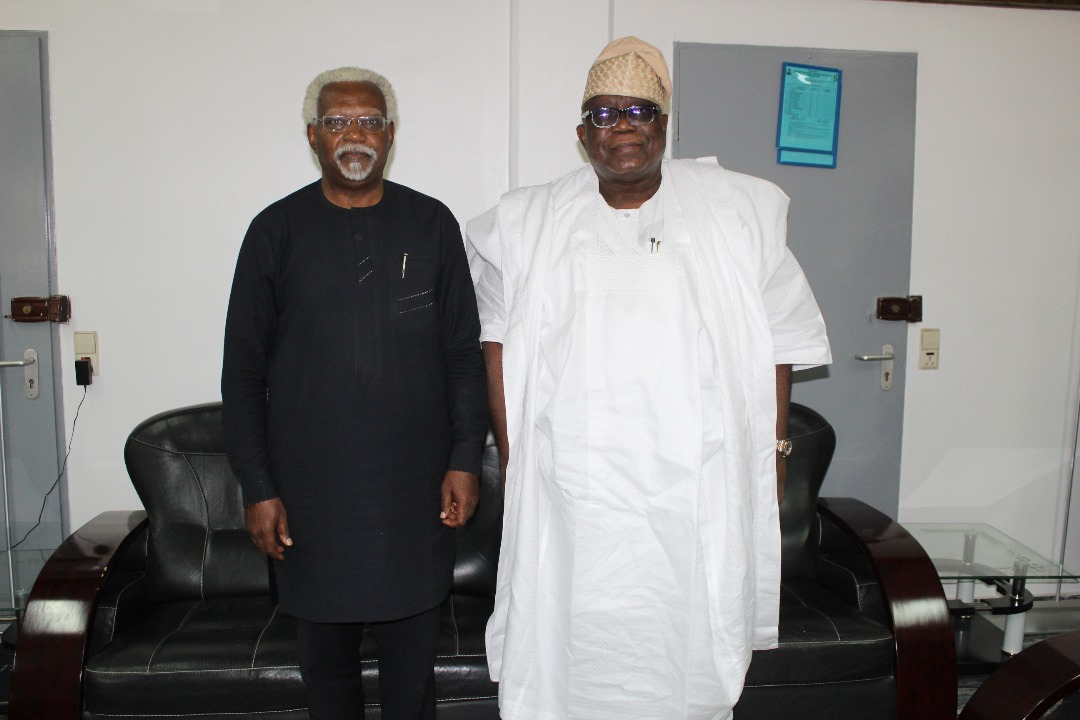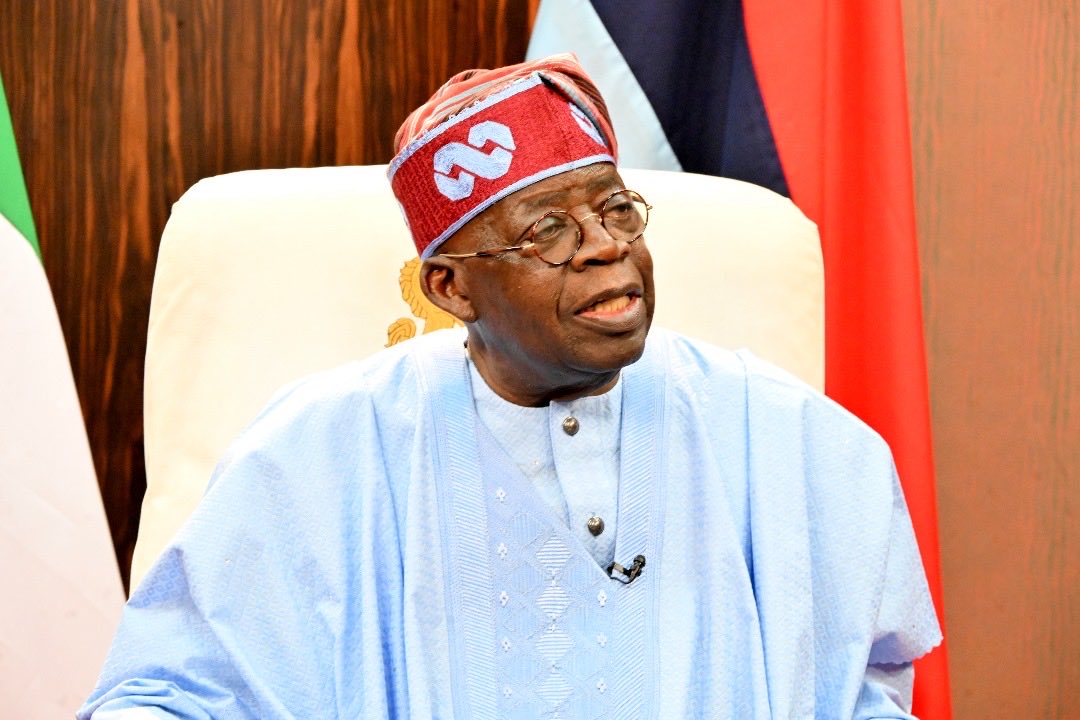News
Salaries and wages negotiation should move away from the present militancy approach-Prof. Olalopa

…Advocates for scientific approach with social protection and social security considerations.
Joel Ajayi
The Chairman, Federal Civil Service Commission, (FCSC) Professor Tunji Olaopa has said that for government to be restored as an employer of choice, pay and compensation matters must be resolved in the core-civil service, saying that the present militancy approach to salaries and wages negotiation should move to a more scientific methods that will be strengthened by social protection measures.
He stated that based on the charges President Bola Ahmed Tinubu gave to the new Board and following his rapid assessment carried out as soon as the Board was inaugurated in December 2023; it was not only to re-engineer the Federal Civil Service Commission within the HR value chain but also touches on the larger reforms which led to his various engagement with Office of the Head of Civil Service of the Federation, Office of the Secretary to the Government among others in order to widen the conversation.
In a statement Signed by the Head Press & Public Relations of the the Commission Taiwo Hassan stated that Olaopa made this known when he paid a courtesy call on the Chairman and Chief Executive of National Salaries, Incomes and Wages Commission (NSIWC); Ekpo Nta, Esq. in his office in Abuja, commended him for his seminal breath into the conversation of wages and salaries; saying that the reform being contemplated by FCSC presently is the kind of reform-advocacy he has championed while he was in service.
The Chairman, who was at the event with some Hon. Commissioners and FCSC Permanent Secretary, noted that the biggest issue in development management in Nigeria is weak institutions. According to him, institutional-capacity readiness of the Nigeria’s bureaucratic is very weak. He added that IQ of services in public sector cannot carry institutional-dynamism in the sector.
He asserts that as a person with ideation orientation, reform thinking and reform design; a seminal-network was needed to remedy the situation with some cross-pollination of ideas and expertise like the overture and engagement he has with the Office of the Senior Special Assistant on Policy Coordination, headed by Hadiza Bala Usman.
He stated that traditional bureaucratic public service created a platform for different expertise to come in and created a seamless interactions among public administrators, the academics and consultants in the industry adding that in his own generation there was a seeming anti-intellectualism with tendency to regard anything that is rigorous as too technical which made research-findings hardly accepted in public service including in policy formulations, operations and implementations.
He disclosed that part of capacitating the service was his various engagements with stakeholders like National Salaries, Income and Wages Commission and others. He believed this will go a long way in closing policy-gaps in addition to policy collaboration to deepen policy engagements, institutionalized reforms and deepening of research.
With internal control mechanism broken down in service, the functionality of service-bureaucracy is compromised. He told the CEO that conversation around pay and compensation in public service has been a challenge. He informed that the capitulation on the issue of pay and compensation due to its inability to be resolved is bad.
While recollecting his workings with experts in Botswana, Tanzania and South Africa, Olaopa said Nigeria environment is not public sector-conducive which brings paid-technical partners and consultants to do the job. He lamented that this is bad for Nigeria’s public service.
He informed that government has inadvertently institutionalized a policy where we recruit one thousands mediocres to do work that can be done by one hundred and fifty experts just because no experts want to work in public service due to its poor compensation and pay system.
Olaopa further disclosed that there is a breakdown of competency based human-resources management that lacks the necessary IQ which has been made worse by the way we manage our Federal Character policy. He said the issue of pay and compensation is a game of number.
He called for a serious re-grading, job evaluation, re-thinking of the whole structure and clear policy and guideline on the creation and winding-up of institutions. He added that, so many institutions were created, later bloated and their staff dumped eventually on the civil service without strict treasury-considerations.
He revealed that a lot of operational activities in FCSC are archaic, outmoded and not ICT driven and which has not impacting on the FCSC processes. Hence, the current rethinking is to go full digitization which will make the whole process smarter and more agile.
The Chairman observed that performance related pay is tricky issue to discuss. He however stated that government has set up change management process of “performance management bond” which is core instrument in performance management. With this, this will bring HR-Flexi policy where critical skills is injected and workers with scarce skills are compensated more leading to increase in IQ at strategic levels based on the global practice of senior executive service model that creates different pay levels.
When talking about indexation of wages to inflation and other variables, Olaopa said key issue is not wage or salary but some of the non-pecuniary benefits. He disclosed that pay-policy being worked upon by Salaries and Wages Commission will help to guide the entire management of pay administration system. He said having a competitive wage will clarify a lot of various uncertainties around this conversation; saying it is high time for the country to practice de-centralization within fiscal federalism where States pay salary according to their ability. Hence, some States are still paying #18,000 minimum wage.
Responding, Mr. Ekpo Nta, Esq. thanked the FCSC Chairman for his visits. He stated that the engagement has brought a very robust discourse between the organizations.
Flanked by members of his Management team, the Chairman said he was impressed with what Olaopa was trying to do at the Commission by changing its narrative where the Commission is only known for recruitments and promotions.
He said employment into civil service is not competence-driven which leads to present over-bloating in the service. Drawing from COVID19 experience, he said with grade level 12 and below staying away from work for over a year at that time, and grade level 13-17 officers handled the entire work in the service brought a lean workforce in a cost-effective manner. He further disclosed that 156 staff in his Commission run the entire national salaries, incomes, and wages activities of the country.
He advised FCSC Chairman to digitize its recruitment, promotion and discipline operations.
He emphasized that promotion should not be based on seniority but performance.
He said cost of living adjustment for salaries and pay does not need to be done haphazardly but based on the mechanism of real and appropriate wages tied to the market variable and cost of living.
He pledged to technically support the Commission in its reform and re-engineering agenda.
News
Ogunlesi backs Tinubu reforms as FIRS chairman Adedeji highlights export-led economy

Joel Ajayi
After a high-level meeting with President Bola Tinubu in Abuja, Nigerian-born global investor Adebayo Ogunlesi expressed renewed confidence in the country’s economic reforms, indicating potential mega investments across energy, aviation, and port sectors.
He was joined in that optimism by Zacch Adedeji, Executive Chairman of the Federal Inland Revenue Service (FIRS), who stressed that the reforms were laying the groundwork for an export-driven economy.
Speaking to journalists after the closed-door meeting, Ogunlesi praised the sweeping policy changes under Tinubu’s administration, including the removal of subsidies, tax reforms, and the revival of a refinery already exporting aviation fuel.
“We had an excellent meeting where we discussed how to put Nigeria front and center for international investment. The President was very encouraging, and we shared useful suggestions on driving economic growth,” Ogunlesi said.
Although he declined to reveal specific details, Ogunlesi confirmed that his firm is actively investing in Nigeria and assessing new opportunities.
“Watch this space. Nigeria is not yet the most exciting investment destination, but that’s what we are working on,” he teased.
Pressed on the sectors of interest, Ogunlesi highlighted energy, gas, aviation, ports, and renewables. Drawing on his firm’s experience with LNG projects in Texas and Australia, he noted Nigeria’s massive untapped gas reserves.
On aviation, he acknowledged his reputation as “the guy who bought Gatwick Airport” and signaled interest in similar ventures locally.
He also admitted that one of his companies operates ports in Cotonou and Lomé but none in Nigeria, a point Tinubu reportedly challenged him on.
“He forgave me but said, ‘you have to bring port investment to Nigeria,’” Ogunlesi recounted with a smile.
International investor Hakeem Bello-Osagie, who was also present, underscored the importance of diaspora participation in Nigeria’s growth story.
“When Nigerians at home and abroad invest in Nigeria, it sends a strong signal to the world,” he said, lauding Tinubu’s policies for making the country “investable.”
Echoing the sentiment, FIRS chairman Adedeji described the reforms as the foundation for an export-led economy.
“We’ve done the fundamentals, and now it is time to deliver growth,” he said.
With global players signaling confidence, the momentum for Nigeria’s economic repositioning is gaining ground, setting the stage for transformative investments in key industries.
-

 Featured6 years ago
Featured6 years agoLampard Names New Chelsea Manager
-

 Featured5 years ago
Featured5 years agoFG To Extends Lockdown In FCT, Lagos Ogun states For 7days
-

 Featured6 years ago
Featured6 years agoChildren Custody: Court Adjourns Mike Ezuruonye, Wife’s Case To April 7
-

 Featured6 years ago
Featured6 years agoNYSC Dismisses Report Of DG’s Plan To Islamize Benue Orientation Camp
-

 Featured4 years ago
Featured4 years agoTransfer Saga: How Mikel Obi Refused to compensate me After I Linked Him Worth $4m Deal In Kuwait SC – Okafor
-
Sports3 years ago
TINUBU LAMBAST DELE MOMODU
-

 News9 months ago
News9 months agoZulu to Super Eagles B team, President Tinubu is happy with you
-
Featured6 years ago
Board urges FG to establish one-stop rehabilitation centres in 6 geopolitical zones
